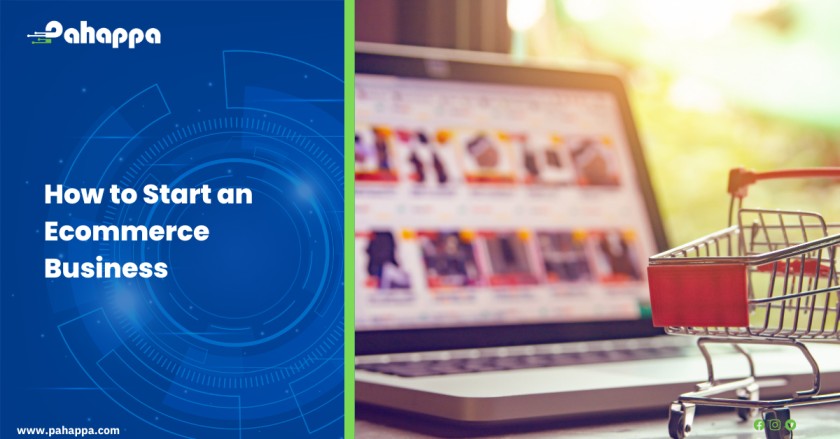Ecommerce is the future of retail. It has been growing rapidly in recent years and is now a major force in the retail industry. Starting an ecommerce business can be a great way to be your own boss, set your own hours, and work from anywhere in the world. However, diving into the world of online entrepreneurship can be overwhelming, especially for those new to the realm of ecommerce. That is why we have crafted article to help aspiring entrepreneurs navigate the intricacies of starting an ecommerce business successfully.
What is an Ecommerce business?
An ecommerce business is a business that sells goods or services to customers online. Ecommerce businesses can range from small, home-based operations to large, multi-million dollar enterprises. A successful ecommerce strategy can allow entrepreneurs to reach a global audience with minimal overhead costs.
Here are a few examples of ecommerce businesses:
- Jumia: Jumia is an online marketplace that allows users to buy and sell a variety of products, including electronics, clothing, and home goods. Jumia also offers a variety of services, such as delivery, financing, and insurance. Jumia is one of the largest ecommerce businesses in Africa, and it has a strong presence in Uganda.
- Uber: Uber is a ride-hailing service that allows users to request a car through a mobile app. Uber drivers are independent contractors who use their own cars to provide rides. Uber is one of the most popular ride-hailing services in the world, and it has a strong presence in Uganda.
- Amazon: One of the world’s largest ecommerce companies, Amazon began as an online bookstore and has since expanded into a vast marketplace offering a wide range of products, including electronics, clothing, home goods, and more. Amazon allows third-party sellers to list their products on the platform, making it a prominent example of a business-to-consumer (B2C) ecommerce model.
- eBay: eBay is an online auction site where people can buy and sell a wide variety of goods. eBay is a great place to find unique and hard-to-find items. eBay is also a great place to get a good deal on used items. eBay is a popular platform for both buyers and sellers, and it is a great way to find the things you are looking for at a price that you can afford.
- Walmart: Walmart is a large brick-and-mortar retailer that also has an online presence. Walmart sells a wide variety of products, including groceries, clothing, and electronics. Walmart is known for its low prices and its convenient shopping experience. Walmart is a popular choice for both online and in-store shoppers.
Why Start an Ecommerce business?
- Low startup costs
Ecommerce businesses can be started with relatively low startup costs, as there is no need to rent a physical store or hire employees. This makes it a great option for entrepreneurs who are just starting out or who are on a tight budget.
- Global reach
Ecommerce businesses can reach customers all over the world, which can help to increase sales and profits. This is especially beneficial if you have a product or service that is in high demand in a particular country or region.
- Flexibility
Ecommerce businesses can be run from anywhere in the world, which can give entrepreneurs the freedom to work from home or travel. This can be a great option for people who want to have more control over their work-life balance.
- Potential for high profits
Ecommerce businesses have the potential to generate high profits, especially if you can find a niche market and provide a high-quality product or service. This can be a great way to achieve financial independence and build a successful business.
- Targeted Marketing
Digital marketing channels provide targeted and cost-effective ways to reach your ideal customer base. Through techniques such as search engine optimization (SEO), social media advertising, and email marketing, you can precisely target your marketing efforts to reach the right audience. This ability to personalize marketing messages and engage with potential customers directly can lead to higher conversion rates and improved ROI.
- Data-driven Decision Making
Ecommerce businesses have access to vast amounts of data that can be analyzed to make informed decisions. From website analytics to customer behavior patterns, you can gather insights into customer preferences, shopping habits, and product performance. This data-driven approach enables you to optimize your strategies, tailor your offerings, and continuously improve the customer experience.
- Scalability and Growth Potential
Ecommerce businesses have immense scalability and growth potential. As your business expands, you can easily scale up operations, add new products, and reach a larger customer base. With the right strategies in place, you can seize opportunities for growth and adapt to changing market dynamics quickly.
How to Start an Ecommerce Business?
- Do your research
Before you start any business, it’s important to do your research and understand the market you’re getting into. In the case of ecommerce, this means understanding what products or services are in demand, who your target customers are, and how you can reach them.
- Choose a niche
Once you have a general understanding of the ecommerce market, it’s time to choose a niche. A niche is a specific market segment that you can focus on. This will help you to target your marketing efforts and build a strong customer base.
- Create a business plan
A business plan is a roadmap for your business. It should include your goals, your marketing strategy, and your financial projections. A business plan will help you to stay organized and focused as you build your business. It will also help you to secure funding from investors or lenders.
- Set up an ecommerce store
There are many different platforms that you can use to set up an ecommerce store. Some popular platforms include WooCommerce, and Magento. When choosing an ecommerce platform, you’ll need to consider your budget, your needs, and your level of expertise.
- Market your store
Once your store is up and running, you need to start marketing it. There are many different ways to market your store, such as search engine optimization (SEO), pay-per-click advertising (PPC), and social media marketing. By marketing your store, you can reach more customers and increase sales.
- Provide excellent customer service
Excellent customer service is essential for any business, but it is especially important for ecommerce businesses. Make sure you respond to customer inquiries promptly and resolve any problems quickly and efficiently. By providing excellent customer service, you can build a strong customer base and create a positive reputation for your business.
- Grow your business
Once you have a successful ecommerce business, you can start to grow it by expanding your product offerings, entering new markets, or opening physical stores. By growing your business, you can increase your profits and reach more customers.
Building your own ecommerce business is as exciting as it is challenging. At a rapid pace, you’ll learn a ton about choosing a product, evaluating its viability, figuring out how to get it produced, building an ecommerce website, and marketing and selling to new customers. The process can feel like you’re solving a head-scratcher of a puzzle, but it’s rewarding all the same. Contact us today to get started with your ecommerce software developement











